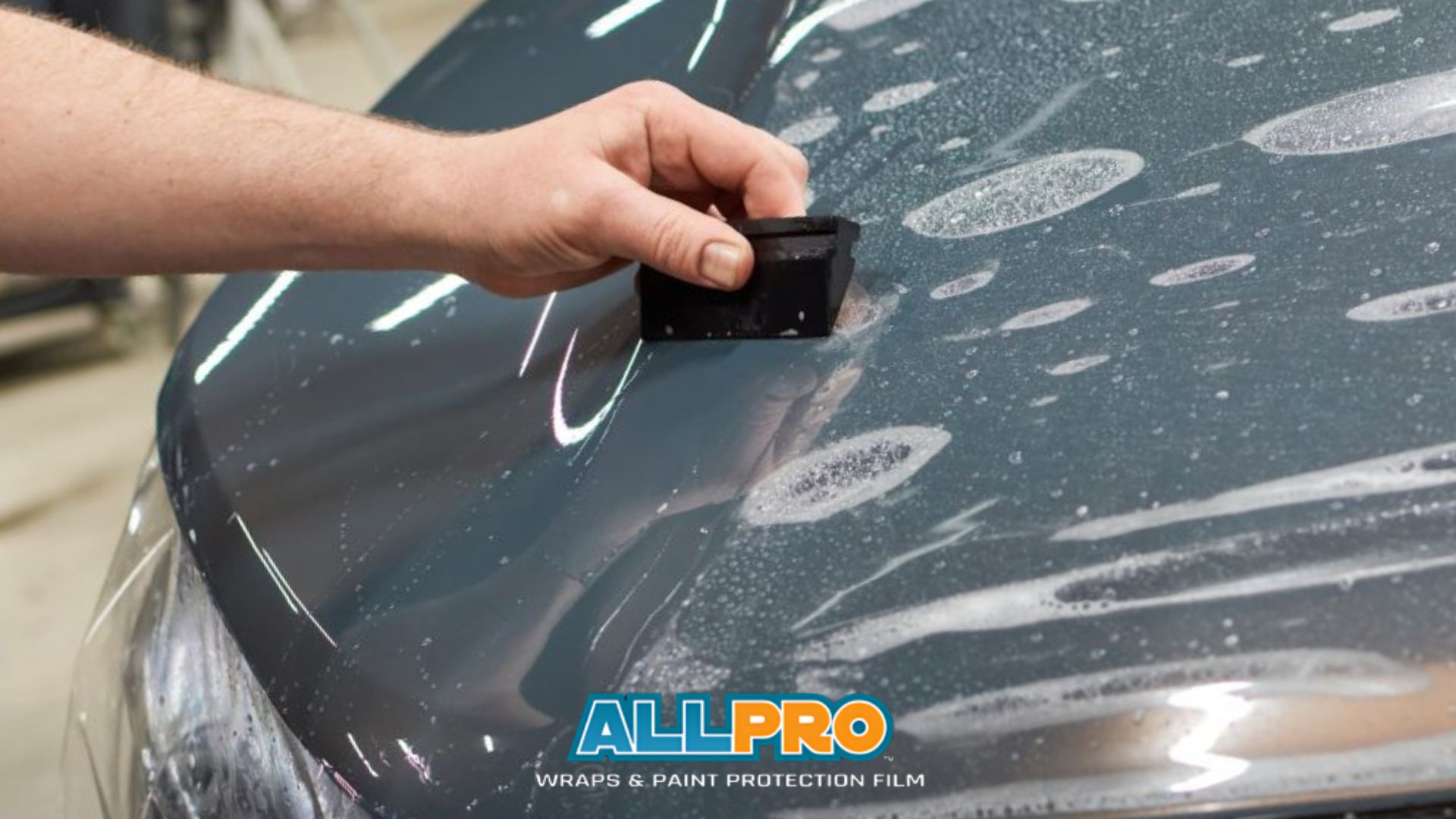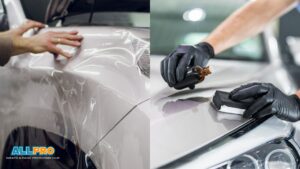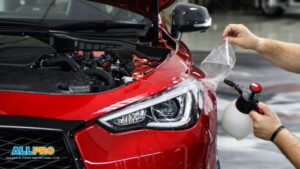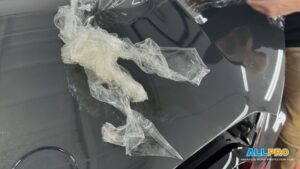If you’re thinking about adding Paint Protection Film (PPF) to your car, you might be wondering if it will harm your vehicle’s original paint. It’s a common concern, especially when protecting something as valuable as your car.
The good news? PPF, when applied and removed properly, won’t cause any damage to your paint. In fact, it serves as an extra layer of defense against the elements, scratches, and road debris. However, there are key factors to consider for safe installation and removal, which we’ll explore in detail below.
What is Paint Protection Film?
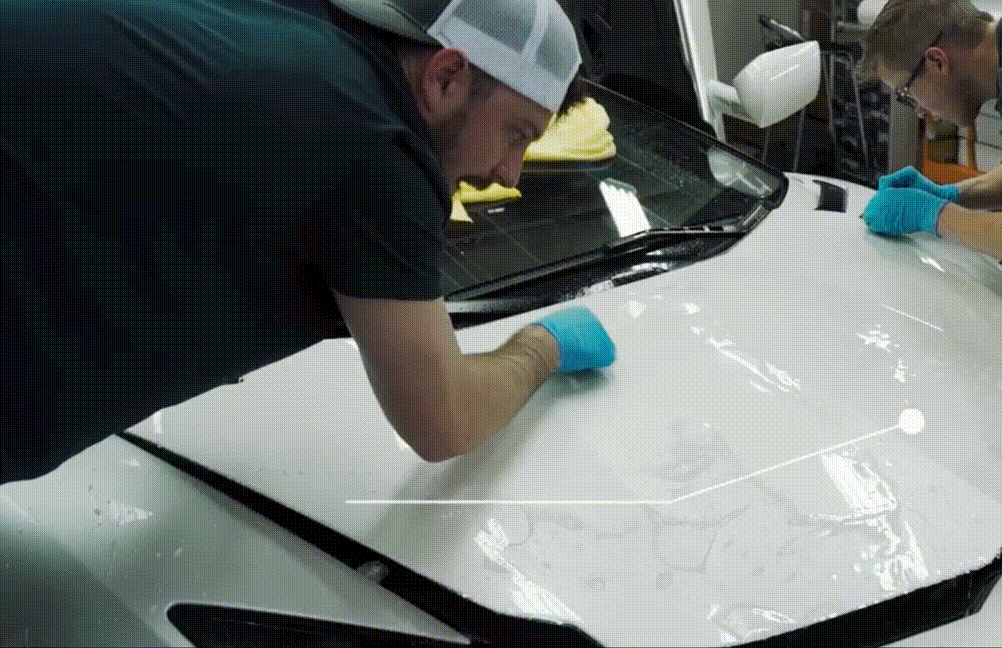
Paint Protection Film (PPF) is a transparent, thin layer of urethane designed to shield a car’s paint from common hazards like road debris, minor scratches, bird droppings, and harmful UV rays. Acting as a protective barrier, PPF helps preserve the paint underneath, keeping your vehicle looking fresh and well-maintained for years. But does applying this protective layer cause any damage to the paint itself? Not when it’s done correctly by a professional installer.
Safe Application of PPF
When paint protection film is applied professionally, the process is meticulous. Here’s why that’s important:
-
- Expert Precision: Professional installers are trained to apply PPF precisely to avoid air bubbles or imperfections.
-
- Clean Environment: The process is typically done in a sterilized, climate-controlled environment to prevent dust or contaminants from getting trapped.
-
- Proper Tools and Materials: High-quality tools and materials are used to ensure that the film adheres perfectly to the surface without harming the paint underneath.
If applied incorrectly, such as in a DIY project, problems can arise:
-
- Air bubbles might form.
-
- Contaminants can get trapped under the film.
-
- Uneven application can lead to long-term damage.
That’s why it’s essential to leave paint protection film installation to the professionals. Always choose an installer with good reviews and experience, like AllPro Wraps.
Safe Removal of PPF
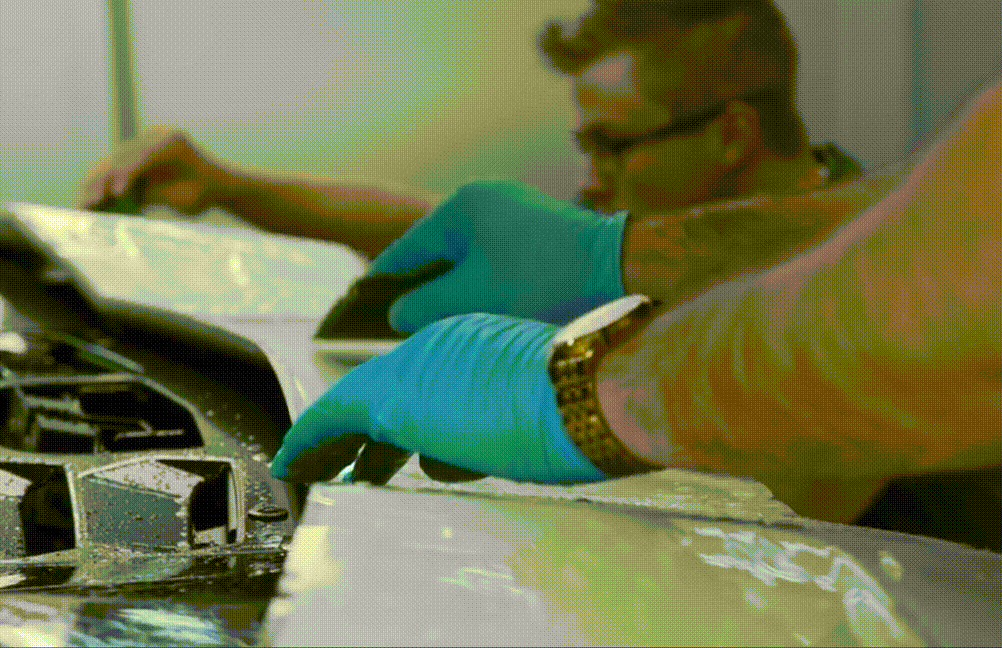
While proper application is crucial, safe removal is equally important. Here’s how to ensure the PPF is removed without damaging your car:
-
- Professional Removal: Experts use specific techniques and solutions to safely remove the film without affecting the paint.
-
- No DIY: Attempting to remove the film yourself could result in peeling paint or adhesive residue left behind, especially if your vehicle’s paint is already compromised.
The adhesive in paint protection film is designed to release cleanly, but only if handled by a professional.
Condition of the Original Paint
The condition of your car’s original paint plays a significant role in whether Paint Protection Film (PPF) will adhere properly without causing any damage. If your paint is in good condition, free from chips, flaking, or any other imperfections, PPF will not harm the surface. In fact, it will provide an extra layer of protection that helps maintain the integrity of your paint over time.
However, if your car’s paint has existing damage, such as weak spots, peeling, or previous imperfections, applying or removing PPF could potentially make these issues worse. For example, damaged paint may peel further or be more prone to lifting when the film is applied or removed. This is why professional PPF installers often perform paint correction beforehand, ensuring the surface is smooth and free from flaws, providing a solid base for the film to bond to without causing further damage.
The Issue of Aging Paint Protection Film
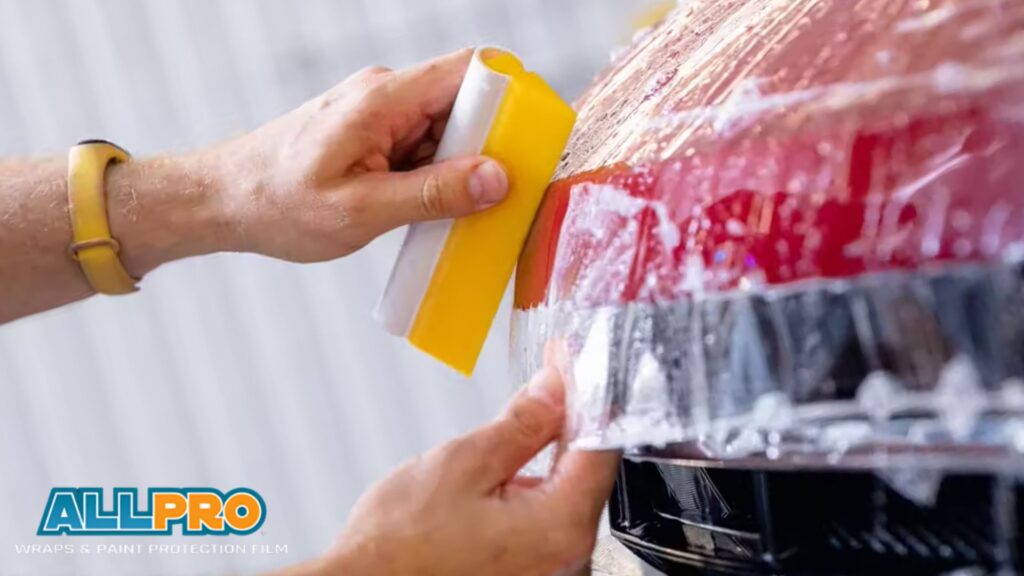
Like anything, PPF can age over time and show signs of wear. Understanding how PPF ages can help you maintain it and avoid any potential problems with your car’s paint.
-
- Yellowing or Discoloration: In extreme weather conditions or after years of exposure, PPF can start to degrade. Harsh environments like excessive heat, snow, or acid rain can cause the film to yellow or lose its clarity.
-
- Regular Maintenance: To prevent degradation, it’s essential to perform regular maintenance on your PPF. Check with your installer for periodic inspections to ensure the film is still performing at its best. If needed, your installer can replace the film before it causes any issues with the paint underneath.
Pro Tip: Most high-quality PPF installations last between 5-10 years, depending on environmental exposure. After this time, it’s a good idea to replace the film to keep your vehicle protected.
Advantages of Professional PPF Installation
If you’re still debating whether or not to invest in Paint Protection Film (PPF) for your car, it’s worth considering the numerous long-term benefits that come with professional installation. PPF not only provides immediate protection but also offers lasting value that can extend the life of your car’s paint and enhance its overall appeal. Let’s break down the key advantages in more detail:
Protection from Everyday Hazards
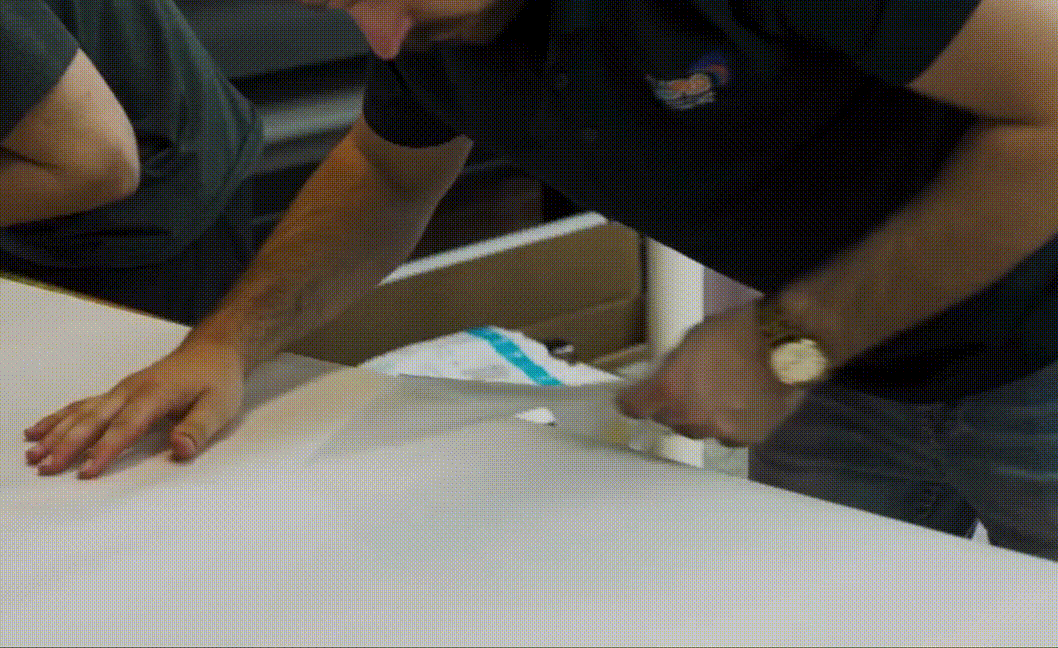
One of the main reasons car owners choose to install PPF is to safeguard their vehicle from the unavoidable wear and tear caused by daily driving. The road is filled with elements that can damage your car’s paint, but PPF offers robust protection against these hazards:
-
- Minor Scratches: Everyday encounters, such as brushing against bushes, parking lot dings, or even careless keys, can lead to small scratches on your car’s paint. PPF acts as a buffer layer, absorbing these light abrasions and preventing them from reaching the paint underneath.
-
- Stone Chips: Highways and rough roads often kick up small stones or gravel that can chip away at your paint, especially on the front bumper and hood. PPF creates a durable shield, effectively deflecting these tiny projectiles and keeping your paint intact.
-
- UV Damage: Constant exposure to the sun’s harmful UV rays can lead to fading and discoloration of your car’s paint over time. PPF provides UV resistance, blocking these rays and preserving the vibrancy of your car’s color. This is particularly valuable for vehicles parked outdoors or driven in sunny climates.
By addressing these common threats, PPF helps maintain your vehicle’s pristine appearance, ensuring it continues to look as good as the day it rolled off the lot.
Final Thoughts: Does PPF Damage Your Car’s Paint?
In conclusion, PPF will not damage your car’s paint as long as it is applied and removed properly by a professional. It provides a durable layer of protection that preserves your vehicle’s finish, shielding it from the everyday dangers that can damage your paint.
Whether you’re looking to protect your car from road debris or simply want to maintain its showroom shine, opting for professional PPF installation and removal is the best way to ensure your paint remains in top condition. If you’re ever unsure, consult a PPF expert for guidance specific to your vehicle.
Need more help? We’re here to answer any questions and assist you in keeping your car protected and looking great for years to come. Contact AllPro Wraps today for a free consultation.

